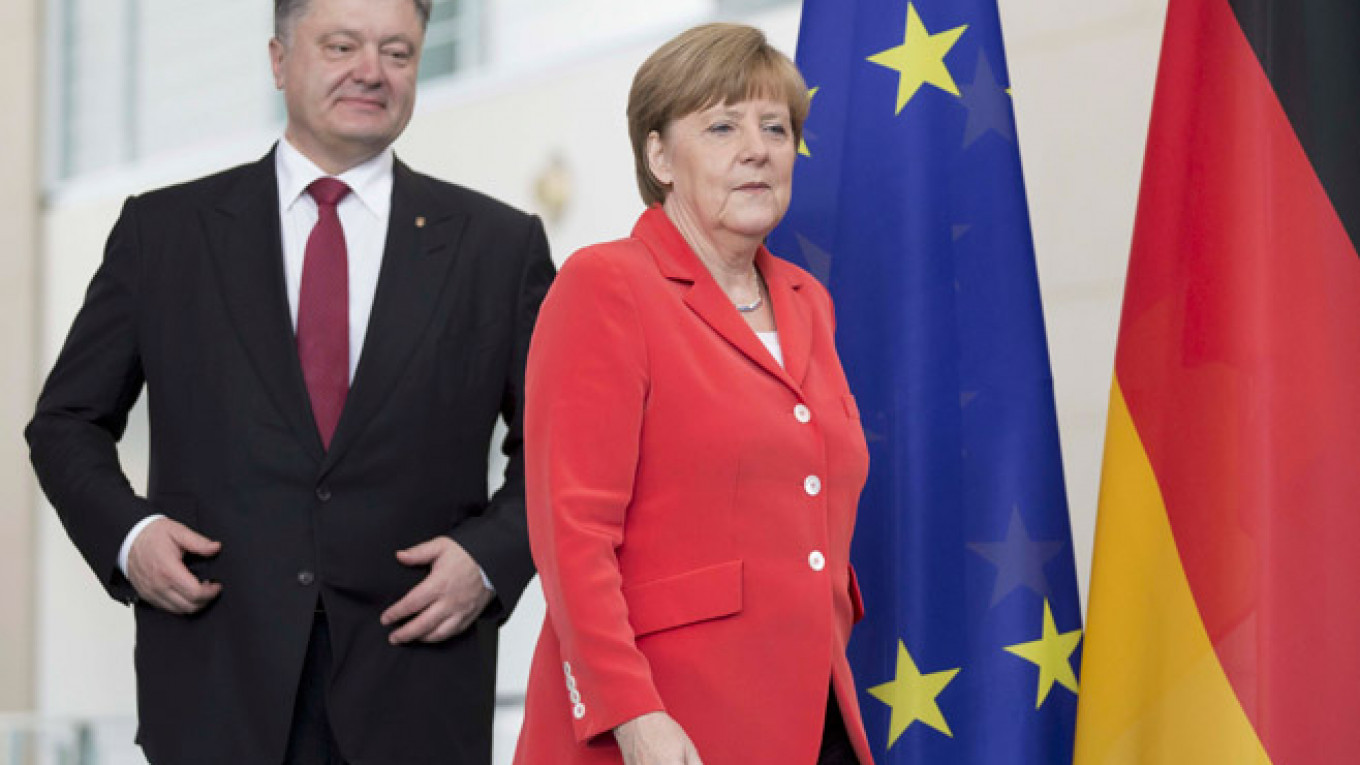Russian readiness to destroy a security structure it itself helped to negotiate after the Cold War now threatens the balance of power in Europe. The ongoing struggle over the European security structure resembles the fight in the 1980s over the deployment of medium-range missiles.
It was German Chancellor Helmut Schmidt who first raised the issue of the threat to Europe from Soviet SS-20 missiles in 1979.
His successor Helmut Kohl in a dramatic domestic fight pushed through the so-called Double-Track Decision, where Germany accepted the NATO decision to deploy intermediate range missiles in Germany if the Soviet Union refused to negotiate about the missile issue. The rest is history.
The specter of nuclear war hangs over the conflict in Ukraine. Moscow has not spoken so loosely about nuclear weapons since the 1960s. Putin wants Russia to be recognized as a major nuclear superpower, on a par with the U.S.
The threat to deploy tactical nuclear weapons in Kaliningrad and Crimea is causing understandable anxiety. Russia is systematically modernizing and upgrading its strategic nuclear weapons.
The Russian reaction to events on Kiev's Maidan and the subsequent ouster of Ukrainian President Viktor Yanukovych surprised the West. The West underestimated the importance of Ukraine for Russia, and particularly its participation in Russia's Eurasian Union.
German Chancellor Angela Merkel's stubborn efforts to negotiate a compromise have met with mixed success. The Minsk II agreement is only an armistice, the problems in eastern Ukraine have not gone away.
The Kremlin's calculus is that the decadent West in the long run will be unable to resist Russian power in Ukraine or will eventually grow tired of the conflict and cede to Russia's demands. The assumption is that Russian reserves will last longer than European patience. Putin is ''rolling the iron dice,'' or gambling on starting a war with Ukraine.
Angela Merkel faces the same challenge as Helmut Kohl did in the 1980s. Nobody, not even Vladimir Putin, should doubt her resolve to defend the European security system. The grand coalition of Christian Democrats and Social Democrats in the German parliament provide strong domestic support.
When it comes to EU questions and, in particular, Ukraine, Merkel's consistent policy also enjoys the support of the Greens. The mighty German export industry has recognized that politics will trump business when it comes to Russia.
The defenders of Russia's heavy-handed tactics in Ukraine have been marginalized within the German political system, but the fight is not over yet.
The struggle over the future of Ukraine and the right of the Ukrainians to choose their own future is now the key issue of the European security system.
Merkel's ability to hold on to the main elements of her policy depends also on support from the rest of the European Union, especially France and Poland.
It is essential that Merkel continue her policy on Russia, and that both sanctions and dialogue are maintained. Europe's future depends on it.
Mats Bergquist is the former Swedish Ambassador to Helsinki and London. René Nyberg is the former Finnish Ambassador to Moscow and Berlin.
A Message from The Moscow Times:
Dear readers,
We are facing unprecedented challenges. Russia's Prosecutor General's Office has designated The Moscow Times as an "undesirable" organization, criminalizing our work and putting our staff at risk of prosecution. This follows our earlier unjust labeling as a "foreign agent."
These actions are direct attempts to silence independent journalism in Russia. The authorities claim our work "discredits the decisions of the Russian leadership." We see things differently: we strive to provide accurate, unbiased reporting on Russia.
We, the journalists of The Moscow Times, refuse to be silenced. But to continue our work, we need your help.
Your support, no matter how small, makes a world of difference. If you can, please support us monthly starting from just $2. It's quick to set up, and every contribution makes a significant impact.
By supporting The Moscow Times, you're defending open, independent journalism in the face of repression. Thank you for standing with us.
Remind me later.






